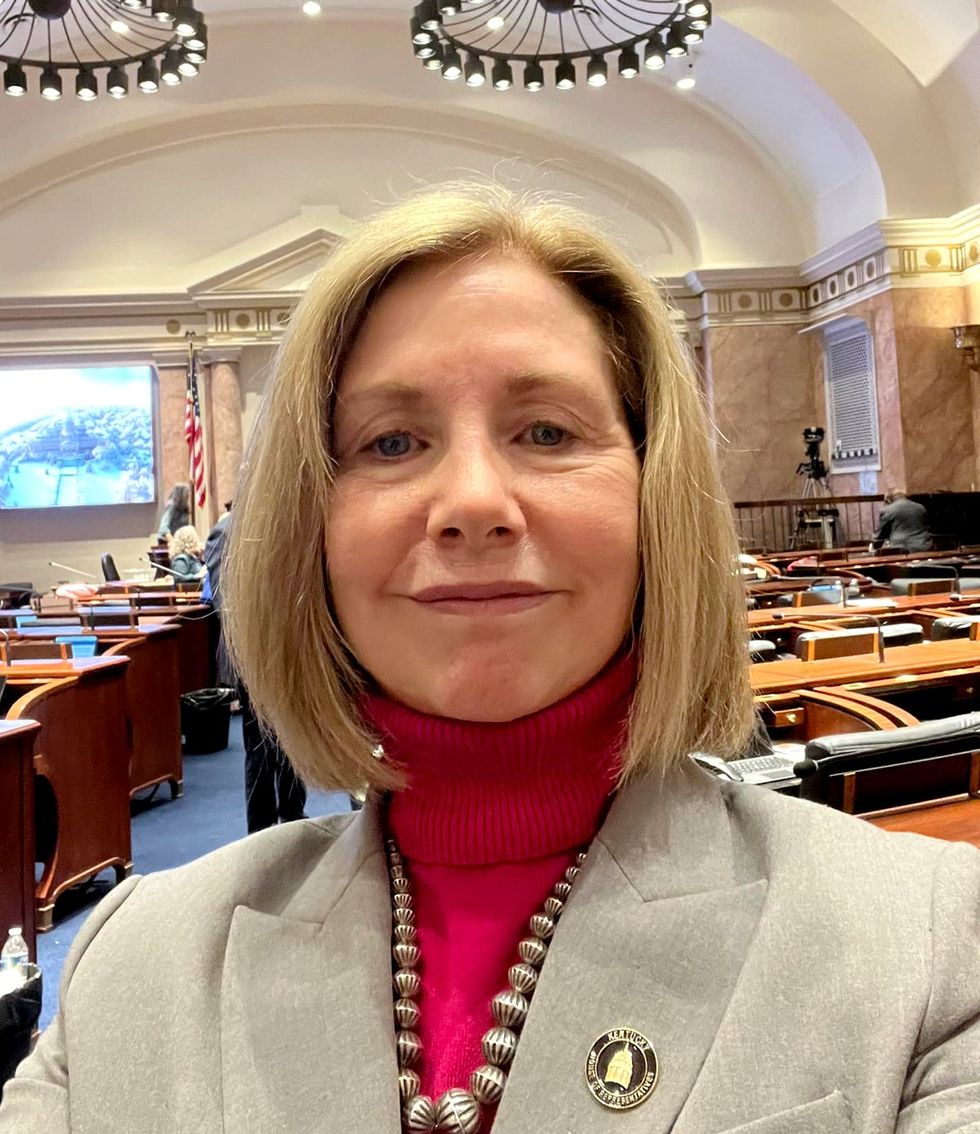As a longtime educator, advocate for human rights, licensed psychologist, and former executive director of the Kentucky Psychological Association now serving in elected office in the Kentucky House of Representatives, I am very encouraged by the action of Gov. Andy Beshear in signing an Executive Order to end so-called conversion “therapy” in Kentucky. This marks a significant achievement for my home state, and one whose impact will extend beyond our Commonwealth. The Executive Order to protect minors from conversion therapy marks a crucial advance in mental health treatment and suicide prevention, and it represents a moment of unity and progress that has the potential to resonate nationally.
Related: Kentucky bans conversion therapy for youth as Gov. Andy Beshear signs 'monumental' order
Conversion “therapy” — a range of dangerous and discredited practices aimed at changing a person’s sexual orientation or gender identity — is linked to severe mental health symptoms and an increased risk of suicide among LGBTQ+ young people. These practices, of course, are in no way “therapeutic:” research shows that LGBTQ+ youth who underwent conversion therapy were more than twice as likely to report having attempted suicide in the past year. According to The Trevor Project, the leading suicide prevention and crisis organization for LGBTQ+ young people, 21% of LGBTQ+ young people in Kentucky reported being threatened with or subjected to this damaging practice. These alarming statistics underscore the urgent need for protective measures to shield our young people from such trauma.
Holding a license to provide mental health services carries with it a responsibility to, at the very least, do no harm. When a young person enters a licensed mental health professional’s office, they and their family members should have full confidence that their provider will not subject them to treatments that are widely discredited, and known to be dangerous and ineffective. Kentucky’s newly-signed Executive Order should give young people and their families confidence that our state’s mental health licensing boards are holding providers to high and accepted standards of safe and ethical practice.
During my six years in the Kentucky legislature, I have proudly served as the primary sponsor of legislation to protect minors from conversion therapy, and I’ve been encouraged to see first-hand how this issue can unite people across party lines. At one point, our “Ban Conversion Therapy” bill had more bipartisan support than any pro-LGBTQ+ legislation in the nation. This overwhelming support wasn’t just political; it was a recognition of the long-lasting harm conversion therapy causes and the common understanding that protecting the mental health and safety of any young person can and should be a shared and nonpartisan goal.
This rare and powerful coalition gave me hope. It showed that even in states like Kentucky — where political differences often run deep — we can unite around fundamental ideals like protecting every child’s right to live free from discrimination and victimization. Conversion therapy is not a partisan issue — it’s a human issue, and standing in solidarity against it reflects our shared values of compassion and care for every young person in Kentucky.
 State Representative Lisa Willner via Facebook
State Representative Lisa Willner via Facebook
Over the past several years, I’ve had many young people and now-grown survivors of conversion therapy’s brutal and abusive practices share their experiences with me. Their stories are by turn heartbreaking and infuriating. Many survivors are still struggling with the harm that was inflicted on them, sometimes years and even decades later. Many are estranged from their families. And when licensed providers were involved in their past trauma, survivors are understandably wary of seeking professional help when they experience ongoing struggles.
While this Executive Order does not entirely ban conversion therapy, it represents a promising movement toward safeguarding vulnerable individuals from its adverse effects. This action is a victory not only for the LGBTQ+ community in Kentucky, but also for advocates across the country who champion the rights of LGBTQ+ young people every single day. It signals that, even in challenging times, we can come together to prioritize the mental health and well-being of our youth who are simply trying to exist as their authentic selves.
Kentucky’s decision to take this monumental step forward should inspire other states, including those that tilt conservative, to follow suit. It shows that humane and just policies can be achieved in every corner of the country when allies, communities, and leaders come together.
However, our work is far from finished. As we celebrate this important milestone, we must continue advocating for policies that support all young people. Passing the Youth Mental Health Protection Act would finally enshrine these protections into statute and bring us closer to ending conversion therapy once and for all. Let Kentucky’s progress serve as a call to action for other states to enact laws that create more inclusive and supportive environments where every child, regardless of where they live, feels valued and empowered to live authentically, exactly as they are.
Lisa Willner is a Democratic state representative of Kentucky, representing District 35. She holds a Ph.D. in clinical psychology and is the former executive director of the Kentucky Psychological Association.
Voices is dedicated to featuring a wide range of inspiring personal stories and impactful opinions from the LGBTQ+ community and its allies. Visit Advocate.com/submit to learn more about submission guidelines. Views expressed in Voices stories are those of the guest writers, columnists, and editors, and do not directly represent the views of The Advocate or our parent company, equalpride.


 State Representative Lisa Willner via Facebook
State Representative Lisa Willner via Facebook















































































